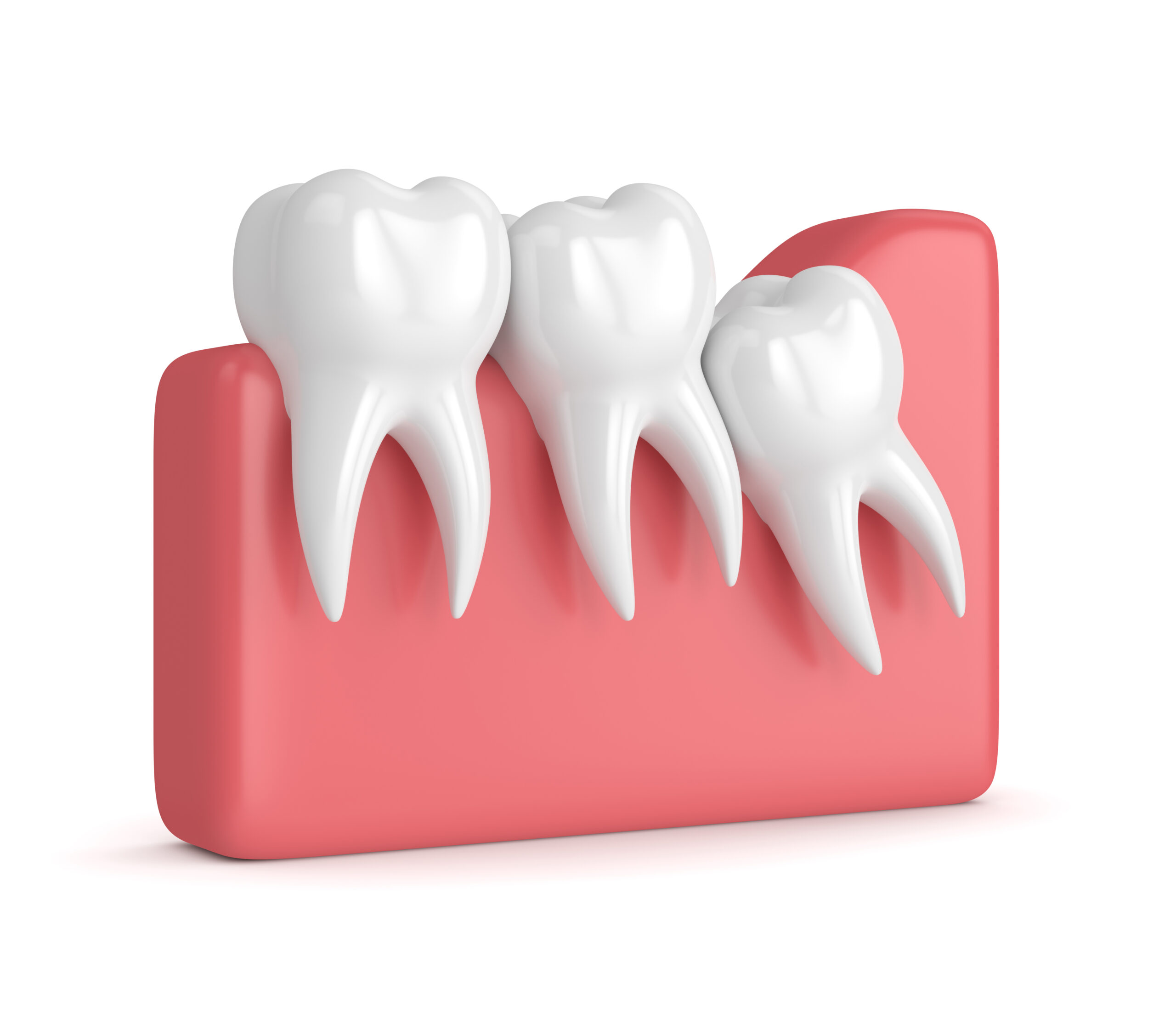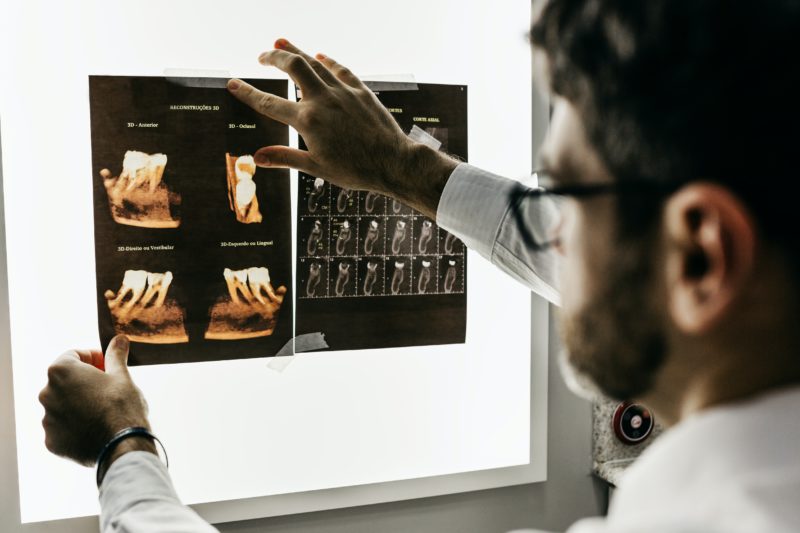What are wisdom teeth and when do they come in?
In this article, we run you through several signs and symptoms that your wisdom teeth are coming through.
Wisdom teeth are the third and final set of molars that most people develop in the back of their mouths, usually in their late teenage years or early twenties. They typically come between the ages of 17 and 25, but some people may not develop them until later in life.
Wisdom teeth are the last set of teeth to develop, and in some cases, they may not have enough room to fully emerge from the gums. This can cause them to become impacted, which means they are trapped beneath the gums and cannot break through. Impacted wisdom teeth can cause pain, swelling, infection, and damage to other teeth and gums.
Many people choose to have their wisdom teeth removed, especially if they are causing problems or are likely to do so in the future. At Granite Belt, we are privileged to have Dr Jun Loh visiting who has a special interest in removing wisdom teeth and has a wealth of experience in performing complex extractions. So if you are wondering if wisdom tooth extraction is right for you, contact us today to find out more.
What are the first signs of wisdom teeth coming in?

Some people may not experience any wisdom teeth symptoms when they first start coming in, while others may experience discomfort or pain. Here are some of the first signs of that your wisdom teeth might be coming in:
#1. Pain or discomfort in the back of the jaw.
As wisdom teeth push through the gums, they can cause pain or discomfort in the back of the jaw. As the wisdom teeth push through the gums, they can cause pressure and pain, especially in the back of the jaw. This can feel like a dull ache or a sharp intense pain that may come and go. The pain may also be accompanied by soreness or tenderness in the gums.
It’s important to note that pain or discomfort in the jaw can also be caused by other conditions like a TMJ disorder or a sinus infection, so it’s always best to see a dentist for an evaluation.
#2. Swelling or tenderness in the gums.
As wisdom teeth push through the gums, they can cause swelling or tenderness around the affected area. This is because the gums are being stretched and pushed as the wisdom teeth try to emerge. The gums may also appear red, swollen, and sensitive to the touch. In some cases, small pimples or cysts may also form on the gums as the teeth try to break through.
This can cause discomfort and pain, especially when eating or brushing your teeth. In some cases, the gums may even start bleeding as the tooth is trying to emerge.
#3. Crowding of other teeth.
Wisdom teeth can push against the other teeth in the mouth, causing them to become crowded. This can happen because there is not enough room in the jaw for the wisdom teeth to fully emerge. As a result, they can push against the other teeth, which can cause them to shift or become misaligned. This can lead to issues with bite and jaw alignment, which can cause pain and discomfort, as well as problems with speaking and chewing.
Additionally, crowding of teeth can make it difficult to clean the teeth properly, which can lead to an increased risk of tooth decay and gum disease.
#4. Difficulty opening the mouth.
Wisdom teeth can cause the jaw to become stiff, making it difficult to open the mouth. This can happen because the wisdom teeth are pushing against the jaw, causing pressure and tension in the jaw muscles. This can make it difficult to open the mouth fully and can cause pain or discomfort when trying to open the mouth. Additionally, jaw stiffness can cause difficulties with speaking, eating and yawning.
#5. Headaches or earaches.
The pressure of the wisdom teeth coming in can cause headaches or earaches. As the wisdom teeth push through the gums, they can cause pressure in the jaw and head, which can lead to headaches. This can feel like a dull ache or a sharp pain, and it may be located in the temples, behind the eyes, or at the base of the skull.
Additionally, the pressure on the jaw can also cause pain in the ears. This can be mistaken for an ear infection, but it’s important to note that it’s caused by the wisdom teeth
If you experience any of these symptoms, you should see a dentist for an evaluation. They will be able to determine if your wisdom teeth are coming in and whether or not they need to be removed.
Signs you need to get your wisdom teeth removed
It’s important to note that not all wisdom teeth need to be removed. However, if you’re experiencing any of the symptoms listed above, it’s important to see a dentist for an evaluation. They will be able to determine if your wisdom teeth are causing problems and whether or not they need to be removed. In some cases, it may be recommended to remove wisdom teeth even if they are not currently causing problems, but are likely to do so in the future.
Should I remove my wisdom teeth if they don’t hurt?
It depends on the individual case and the recommendation of your dentist. In some cases, wisdom teeth that are not causing pain or other symptoms may not need to be removed. However, if they are impacting the alignment of other teeth or if there is a risk of infection or decay, it may be recommended to remove them. It is best to consult with a dental professional for personalised advice.
At Granite Belt Dental, we offer a wide range of treatments to cater for all your dental needs. Our team of experienced dentists in Warwick and Stanthorpe provides personalised care to ensure you receive the highest quality dental treatment. Whether you need routine check-ups, fillings, or more advanced procedures, we are here to help you maintain optimal oral health. If you’re experiencing wisdom tooth pain or are concerned about your wisdom teeth, book an appointment. Our dentists are able to diagnose the problem and recommend the most appropriate treatment plan to alleviate your pain and prevent further complications.


